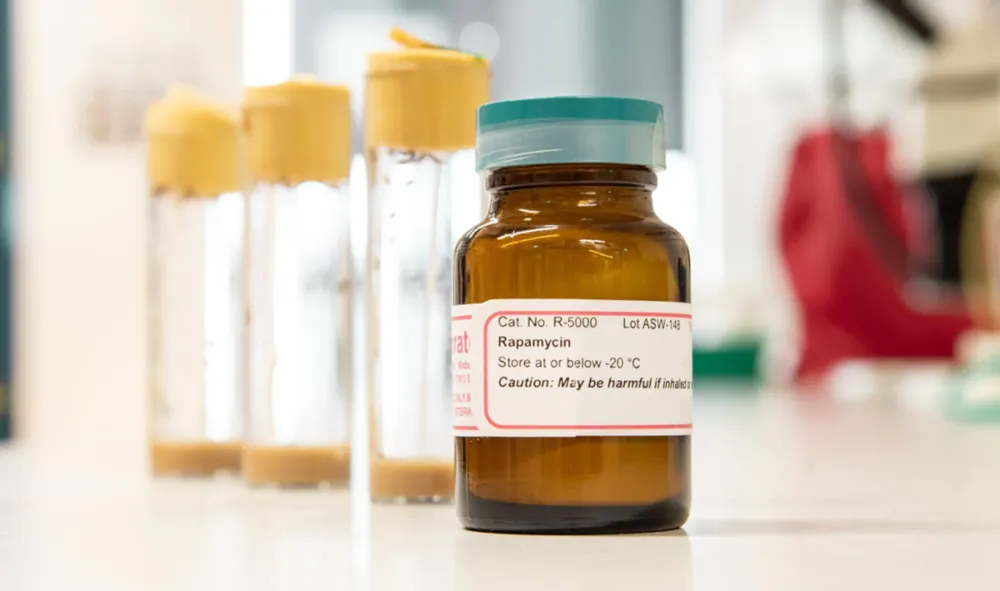Would you buy an anti-aging drug that could give your pup a few extra years by your side?
For every dog owner, the aging and eventual loss of a beloved dog is one of the most tender heartaches—a bittersweet life lesson that’s impossible to avoid. Many people, myself included, hesitate to welcome a furry companion into their lives precisely because they dread this inevitable farewell.
But recent news has sparked hope: a drug named LOY-002, dubbed the „longevity pill for dogs,“ is nearing reality. If approved by the FDA, it could hit the market as early as this year.
Meanwhile, the Dog Aging Project has just secured a $7 million grant from the National Institutes of Health (NIH) to expand clinical trials for an anti-aging medication. If successful, dogs could gain up to three additional years of life.
Table of Contents
Will new anti-aging drug extend dogs' lifespan?

A San Francisco-based biotech company named Loyal, dedicated to developing longevity drugs for dogs, might make this dream a reality for dog owners.
In simple terms, the aforementioned anti-aging drug LOY-002 works by inhibiting excessive insulin secretion in aging dogs, improving their overall health, reducing disease risks, and thereby extending their lifespan.
In early 2024, the first dog received a dose of LOY-002 as part of the pivotal STAY clinical trial. This trial is one of the largest and most diverse canine aging studies of its kind, aiming to enroll over 1,000 senior dogs across 50 U.S. locations. Its goal is to determine whether LOY-002 can truly prolong dogs‘ lives.
Loyal hopes to extend the lifespan of senior dogs by at least one year. Considering that large-breed dogs typically live up to 10 years, this would represent a nearly 10% increase in longevity.
The company has expressed optimism that LOY-002 could receive conditional FDA approval by 2025, with ongoing data collection to secure full regulatory clearance.
Additionally, Loyal plans to build a biobank of canine saliva and blood samples from its studies to support future longevity research in both dogs and humans.
Notably, Loyal is also developing two other anti-aging drugs for large-breed dogs: LOY-001 and LOY-003. LOY-001 targets lifespan extension and quality-of-life preservation in aging large dogs by reducing IGF-1 (insulin-like growth factor 1) levels to those seen in smaller breeds.
IGF-1 is a growth-promoting hormone critical during puppyhood. However, elevated IGF-1 levels in adulthood accelerate aging and shorten healthy lifespan.
While Loyal’s research shows LOY-001 effectively lowers IGF-1 and suppresses age-related insulin spikes in dogs, the company emphasizes that more trials are needed to confirm its lifespan-extending effects.
The founder of Loyal highlighted that studying age-related diseases in dogs—particularly pet dogs sharing human living environments—provides valuable insights for human health research.
One of the Largest Longevity Studies

When it comes to longevity drugs, Daniel Promislow, a gerontology researcher at the University of Washington, has long been intrigued by rapamycin—an immunosuppressant typically used for organ transplant patients.
Numerous mouse studies have shown rapamycin’s lifespan-extending effects. However, mice are not only small in size but also live in highly controlled lab environments, making the results difficult to extrapolate to humans.
This led Promislow to collaborate with a group of scientists in 2019 to launch the Dog Aging Project.
Promislow explains that success in canine trials could mark a turning point for human longevity research. Dogs’ shorter lifespans allow studies to progress faster: a dog’s average lifespan serves as a condensed model—equivalent to roughly 40 years of human aging—for testing a drug’s ability to extend life.
The project aims to enroll healthy pet dogs aged 7+ years and weighing over 20 kilograms (44 lbs) across the U.S., testing rapamycin’s anti-aging effects in real-life settings. To date, over 50,000 dogs have participated.
Regardless of early findings, any canine longevity drug must undergo rigorous testing to prove its safety and efficacy to pet owners. Promislow estimates that if all goes well, results could be published within 4-5 years.
Conclusion
While extending the lifespan of pet dogs appears within reach, the path to safe, widely accepted longevity drugs for humans remains distant—and contentious.
Yet humanity’s quest to „reverse aging“ never ceases. Scientists have already achieved cellular rejuvenation through cellular reprogramming techniques, and breakthroughs in reversing aging at the tissue and organ levels are emerging. For instance, researchers have rolled back the biological clock of skin cells by roughly 30 years, while others have used Yamanaka factors to rejuvenate skin and kidney tissue in mice.
In the foreseeable future, healthy longevity may no longer be an elusive dream.









Add comment